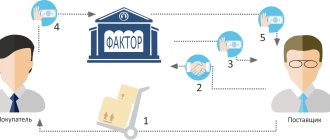Other news
Report corruption
Control and supervision reform
Survey of the population on the activities of managers
Register of state property of the Chelyabinsk region
Digital terrestrial television
X regional conference on government procurement
A professional standard is a list of requirements for a specialist related to his knowledge, abilities, skills and experience. This concept first appeared in labor legislation in 2012: the previously adopted characteristics, which were contained in the Unified Qualification Reference Books (USC), no longer met the needs of the market.
Initially, it was understood that professional standards should be used exclusively in the public sector, and commercial organizations could independently establish a list of required competencies for their employees. Federal Law No. 122, which came into force in 2020, indicated that all companies, regardless of their form of ownership, should implement professional standards.
“From January 1, 2020, state institutions and all organizations subordinate to them, as well as state corporations and state-owned companies, must switch to professional standards without fail,” explains Natalya Tyurina , head of the Qualifications Assessment Center of the SUCCI. “A transition period was established for them until the end of this year. And starting from the new year, in job postings they will indicate the name of the professional standard and conduct interviews based on it. This can be confusing for job seekers.”
Currently, Qualification Assessment Centers are being registered in the constituent entities of the Russian Federation, where prospective employees will have to undergo a comprehensive examination procedure to determine whether the employee’s qualifications meet certain professional standards. On September 17, an independent CSC will be opened at the South Ural Chamber of Commerce and Industry.
“CSC is an independent institute that confirms the professional suitability of an employee. This means that an employee who has a CSC certificate is unlikely to be fired for inadequacy for the position held based on the certification results,” notes Natalya Tyurina.
The algorithm for introducing professional standards into the practical activities of enterprises and organizations, the requirements of the Labor Code of the Russian Federation, issues of personnel training and the consequences of non-compliance with the law will be discussed at the round table. The event will take place at the South Ural Chamber of Commerce and Industry on September 17. Representatives of the Ministry of Education and Science of the Chelyabinsk Region, the Main Directorate of Labor and Employment, the regional agency for the development of qualifications, chairmen of committees of the SUTCI, and representatives of the business community will take part in it.
The main speaker of the event is the Chairman of the Council for Professional Qualifications of Office Specialists and Administrative Workers, member of the Expert Council under the Committee on Labor, Social Policy and Veterans Affairs of the State Duma of the Russian Federation Lyudmila Khlyusneva .
The round table will be held in the conference hall of the SUCCI (Sony Krivoy St., 56), beginning at 15:00 (registration from 14:30).
https://youtu.be/ApLcHY-rDI4
Results
The professional standard for a legal consultant has not yet been developed and adopted in accordance with the established procedure. And until it is approved and included in the register of professional standards, the qualification requirements contained in the CEN directory continue to apply. You should be guided by them when concluding an employment contract with a lawyer and approving a job description.
After the adoption of the professional standard for a lawyer, employees working in this position cannot be dismissed only on the grounds that their skills (knowledge, abilities and education) do not correspond to the standardized ones.
The concept of “professional standard” was introduced into the Labor Code five years ago by Federal Law dated December 3, 2012 N 236-FZ. Since then it has firmly entered into everyday life. The Ministry of Labor almost daily approves new standards, the use of which has become mandatory for a number of organizations. To ensure that the information is systematized and any employer or citizen can find the information they need, a register of professional standards was created. The operator of the resource was the Russian Ministry of Labor.
According to labor legislation, professional standards are a requirement for the qualifications of specialists necessary to perform their professional activities. Qualification, in turn, includes a list of knowledge and skills, experience and professional skills that an employee must have. The development and approval of professional standards is carried out by the Russian Ministry of Labor; the list of specialties is formed taking into account the priority areas of economic development and proposals of the National Council under the President of the Russian Federation for professional qualifications. In the Labor Code, these requirements are regulated by Article 95.
In order for any employer or specialist to be able at the right time to find a description and requirements for each profession for which a standard already exists, the professional standards approved by the Ministry of Labor 2020 have been combined into a special register. It is a detailed information system that defines the relevant qualification requirements for the specialties included in it. In the registry you can find:
- definitions connecting the spheres of professional work;
- descriptions that help to emphasize the real experience of specialists, rather than educational programs;
- a list of powers and responsibilities of employees holding a certain position;
- degree of responsibility by type of activity;
- other useful information.
A new professional standard has been introduced for lawyers
From May 31, 2020, trainees and already professional lawyers will improve their qualifications in accordance with the new professional standard. It should be noted that the Standard for professional training and professional development of lawyers and legal trainees was approved within the framework of the IX All-Russian Congress of Lawyers, which took place on April 18, 2019. The professional standard establishes the procedure for training lawyer trainees, as well as lawyers who have accumulated less than 3 years or more than 3 years of experience.
It is planned that the bar chambers of the constituent entities of the Russian Federation will approve new advanced training programs for lawyers and a training course for trainees. In this case, training can be carried out by the bar chamber independently with the involvement of universities that train legal personnel. In addition, the costs that will be associated with organizing and conducting training will be taken into account when determining the amount of mandatory contributions for lawyers.
In accordance with the new professional standard, trainees whose practical activities will begin after May 31, 2020 will undergo mandatory training. A 40-hour course “Introduction to the Profession of a Lawyer” has been prepared for them. Moreover, the internship program will also include questions as part of the qualifying exam to become a lawyer.
If we talk about specialists who already have professional experience, then for lawyers with less than 3 years of experience, training is provided in the amount of at least 40 academic hours. And specialists with more than 3 years of experience – at least 30 academic hours. It is also possible to increase this minimum to 60 academic hours. Bar associations have this right.
A specialist has the right to independently determine the form of improving his professional level. The main thing is that it be approved by the FPA or the regional chamber. It should also be noted that a lawyer must also participate in professional development activities conducted by the Bar Chamber, as well as incur professional expenses to independently improve his knowledge. Failure to comply with these requirements will result in disciplinary action.
The CHTA Academy implements advanced training courses using distance technologies in 20 areas of jurisprudence. Our course program allows the student to:
- Study changes in regulations within your specialization;
- Master modern technologies and methods of defense, resolving issues in pre-trial proceedings;
- Learn to assess and predict the consequences of various offenses.
We also note that on the basis of CHTA, educational events are regularly held for specialists who have a fairly narrow profile of activity. For example, for medical lawyers there will be an original educational series of five seminars “5 steps to the legal safety of a doctor and a clinic.”
The event is scheduled for June 6, 13, 20, 25, 27, 2020. The series will be hosted by legal consultant on medical law Polina Gabay. The series will address the following important issues for the industry:
- How to ensure legal security in our difficult times?
- How to minimize the risks of legal liability, how to avoid becoming a “money tree” for a patient?
- How to properly prepare documents with a patient, how to insure against errors?
- How to get out of the “employee-employer” conflict with the least losses?
- How to protect yourself from supervisory authorities and law enforcement agencies, how to behave during an inspection?
- How to protect yourself and protect yourself from insults, false information, slander, provocations?
Has the government approved the professional standard for a legal consultant in 2019?
The state became concerned with the need to draw up professional standards for the professions most important to society at the end of the last century. The first draft of such a standard appeared in Russia in 2007, and in the spring of 2012 Decree No. 597 appeared, according to which the Russian Government must develop and approve at least 800 professional standards.
Download documents from the article
Gradually, work in this direction is moving, but the turn of legal advisers has not yet reached. By the beginning of 2020, only two standards related to jurisprudence had been officially approved: for professionals in the field of competition law and for forensic investigators.
A professional standard for a corporate lawyer is also being developed. This is done by specialists from the Faculty of Law of the University. M.V. Lomonosov, according to government decree No. 23 of January 22, 2013. There is an opinion that we can expect the publication of a professional standard for a lawyer approved by the Government of the Russian Federation by the end of 2020.
Both approved standards provide for level 7 qualifications. According to Order of the Ministry of Labor No. 148-n, this means that forensic investigators and competition law specialists are required to have a higher education (master’s or specialist’s degree) in combination with advanced training courses and work experience. While the professional standard for a legal consultant has not been approved, one can only assume that this position will require a qualification level no lower.
What is possible for those who work according to professional standards?
What to use before it takes effect
What should we focus on now, while the professional standard for a lawyer is at the draft stage? Experts recommend turning to the Unified Qualification Directory, which is approved by the Ministry of Labor, in Resolution No. 37 of 08/21/1998.
This handbook contains the following standards regarding legal advisers:
- Consultants with a higher specialized education can work in the position of a specialist without a category, even if they do not yet have work experience. If the education is only secondary specialized, applicants with at least 5 years of experience can be hired for the position.
- Category 2 includes those with a higher law degree and at least 3 years of experience as a legal consultant.
- The 1st category is available to those who have worked as a specialist of the 2nd category for at least 3 years.
What is the difference between a lawyer and a legal consultant
First, let's understand the terms.
Lawyer
is a specialist in the field of legal sciences and law. Graduates of law universities and secondary vocational educational institutions with the appropriate specialization receive the specialty of lawyer. Lawyers, judges, prosecutors, investigators, notaries - these are all lawyers. Thus, a lawyer is a specialty.
Legal Advisor
- a full-time employee who ensures compliance with legal norms and legality within the company and within the framework of its external relationships. We can say that this is a highly specialized lawyer whose field of activity lies within the organization where he works. That is, a legal adviser is a position.
To simplify, we can say that every legal adviser is a lawyer, but not all lawyers are legal advisers.
Try for free, refresher course
Documentation support for work with personnel
- Meets the requirements of the professional standard “Human Resources Management Specialist”
- For passing - a certificate of advanced training
- Educational materials are presented in the format of visual notes with video lectures by experts
- Ready-made document templates are available that you can download and keep for your work
What liability is provided for non-compliance with professional standards?
If the Labor Code or other regulatory act establishes certain qualification requirements that are necessary to perform a certain job function, the employer is obliged to hire a person who meets these requirements.
In case of violation of this requirement, the employer may be held financially liable on the grounds and in the manner provided for in Article 5.27 of the Code of Administrative Offenses of the Russian Federation.
Structure of the professional standard of a legal consultant
There are uniform requirements that apply to all Russian professional standards. They were approved by Order of the Ministry of Finance No. 147-dated 04/12/13. According to this order, the professional standard for a legal consultant will have the following structure:
- Common data.
Description of the type, nature and purpose of the activity. Here they also indicate the OKVED code and group of occupations (OKZ), and note which economic sphere the profession belongs to. - Utility functions, briefly.
This section contains a thesis description of the work. For example, in the case of a forensic investigator, it is indicated that the specialist carries out investigative actions that lead to the solution of a crime. - Labor functions, in detail.
Here is the detail of everything that was listed in the second paragraph. Plus a listing of the knowledge and skills that are required from a legal consultant. If we take the approved investigator standard as an example, then this paragraph contains the requirement for the 7th qualification level. It is also noted here that in order to be allowed to work, you must meet specialized requirements (but there are no restrictions related to practical experience). - Authors and responsible.
Data from the developer of the standard and an indication of the structures that are responsible for the development and implementation of the standard.
It is assumed that paragraph 3 of the professional standard for a corporate lawyer will require a higher legal education specifically in the field of corporate law (master's degree).
Labor functions of a legal adviser
Until a professional standard has been approved for lawyers, employers have some freedom when drawing up job descriptions and employment agreements. To provide for maximum situations, it is advisable to use the provisions of the first section of the CEN. According to it, among the official functions of a legal adviser:
- Drawing up documents related to legal issues. Consulting on legal issues within the company, monitoring compliance with the law in the organization’s activities, assistance in preparing responses to requests from regulatory authorities, processing claims.
- Preparation of documentation for court proceedings and investigations, ensuring accounting and control of all cases for which there is a court decision.
- Participation in campaigns to improve internal discipline at the enterprise (both labor and financial), taking care of the preservation of the organization’s assets.
- Working with documents on bringing employees to various types of liability (for example, disciplinary).
- Participation in the preparation of external and internal contracts and agreements; resolving issues related to debts (both creditors and receivables).
- Monitoring changes in legislation, timely informing management and staff about innovations that may affect the company’s work.
- Processing of legal issues that arise in the course of the enterprise’s activities, consulting employees, assistance in drawing up internal reference and legal acts.
As for the requirements for professional knowledge, a legal adviser must be familiar with:
- Regulatory and legislative acts that are relevant to the activities of the enterprise.
- Methodological recommendations.
- Issues of civil, financial, administrative and labor law.
- Tax and land legislation.
- Rules and standards for drawing up agreements, contracts and other documents.
- Fundamentals of accounting and electronic document management.
- Labor safety standards.
Job descriptions for legal advisers may vary depending on the specific activities of the enterprise in which they work. This is what a typical sample looks like.
Teacher's job description and professional standard: how to bring it into compliance?
When developing/adjusting a teacher’s job description, the employer must first of all bring it into line with the professional standard:
- name of the employee's position;
- a list of criteria that must be met by the employee holding the position (or applying for it);
- the content of the employee’s labor function as enshrined in the job description.
At the moment, no standard job description for a teacher has been developed at the legislative level. To draw up such a document, we suggest using the recommendations from our article “Sample of filling out a job description according to professional standards.”
Rights and responsibilities
In carrying out his duties, the legal adviser has the right to:
- Represent the interests of the enterprise in correspondence and negotiations in courts and before government agencies.
- Provide employees with instructions that directly relate to the resolution of legal and legal issues.
- Endorse a number of management documents.
- Make demands to management regarding compliance with documentation storage conditions.
At the same time, there is also responsibility for:
- Neglect of the duties specified in the TD.
- Disclosure of trade secrets, violation of orders and internal regulations of the company.
- Independent decisions not coordinated with management, which ultimately harmed the company.
- Violations in the preparation, maintenance and storage of legal documents.
Who is developing the professional standard “Lawyer”
During 2020, many professional standards approved by the Government of the Russian Federation came into effect, but there is no professional standard for lawyers yet, and it was not published on the official website of the Ministry of Labor. The ministry proposed a general layout. Profile specialists have the right to develop a project based on it (clauses 3, 7 of the Rules, approved by Government Resolution No. 23 of January 22, 2013).
- Association of Financial Market Participants “Council for Professional Qualifications of the Financial Market”;
- Media group "Aktion-MCFER";
- All-Russian Trade Union of Arbitration Managers;
- Trade Union of Lawyers of Russia.
Until March 31, 2020, amendments were adopted and the opinions of lawyers were taken into account. Now the project needs to be agreed upon with the employer community and approved by the ministry and the Government. You can download for review the draft professional standard “Lawyer”, which has not yet been approved by the Government of the Russian Federation, but whose approval is possible in 2019.
Articles about the work of a lawyer in the magazine "Company Lawyer"
Relevance of data in the registry
The Ministry of Labor and Social Development of the Russian Federation constantly approves new packages of professional standards and updates their register. For example, on March 31, 2020, it included the following specialties:
- specialist in energy management in the construction industry;
- specialist in energy service activities at capital construction sites;
- installer of industrial gas and gas-using equipment and gas pipelines;
- composite materials technician;
- organizer of project production in construction;
- driver of a combined road vehicle;
- specialist in modernization, technical re-equipment and reconstruction of foundry production;
- machine operator for laying geosynthetic materials;
- heater;
- specialist in the field of design of water treatment and water intake structures;
- springer;
- asphalt concrete heater operator;
- specialist in setting up lifting structures;
- expert in assessing the compliance of lifting structures with safety requirements;
- general purpose crane operator;
- machine operator for driving and driving piles;
- installer of low-current security and safety systems;
- specialist in the design of refrigeration systems;
- Robotic Manufacturing Maintenance Technician;
- general practitioner (precinct general practitioner);
- specialist in energy inspection of capital construction projects, etc.
Professional standard "Legal Consult"
Important: a lawyer often occupies an important place in the corporate hierarchy, reports directly to the CEO and participates in resolving key issues for the organization, labor conflicts and litigation.
Help development and analysis of legal documentation, including; drafting documents for transmission to investigative or judicial authorities; representation in court, as well as recording and storage of cases considered by the court, prosecutor's office and other bodies; drafting agreements, contracts and other legally significant documents; preparing responses to requests from regulatory authorities; methodological management of legal work in the organization; participation in activities to strengthen financial and labor discipline; consulting individual employees and departments, if necessary, providing legal assistance; analysis and preparation of property and financial documentation; conducting claims work (providing explanations, rejecting claims, informing and issuing certificates); legal support of various procedures - from consideration of issues of accounts payable or receivable to the conclusion of agreements; informing management and ordinary employees about existing legislative norms and innovations that could affect the company’s activities.
Professional standard for a legal consultant in 2020
This task cannot be solved without an appropriate base in the form of a professional standard for “Legal Counsel”, as well as without an assessment of their qualifications within the framework of an independent examination.
The importance and necessity of legal professional standards All professional standards introduce a certain order in the regulation of job requirements.
They make it much more convenient to formulate job instructions for various positions, resolve issues related to staffing, and plan employee certification and training.
How, along with general positive aspects, can professional standards created specifically for lawyers be useful?
Mandatory requirements for personnel selection will allow us to achieve a higher “concentration” of better qualified employees.
It will be possible to unambiguously answer the questions that have arisen in connection with the Bologna education system as part of the training of legal personnel: what legal position can be held with a bachelor’s level.
What was included in the draft professional standard
The structure of the standard was proposed by the Ministry of Labor. It has 3 sections:
- General information.
- Description of a lawyer’s labor functions included in the professional standard (functional map of this type of professional activity).
- Characteristics of generalized labor functions.
The general information of the professional standard “Lawyer” includes:
- Name of the type of professional activity. This is the activity of providing professional legal assistance to individuals and legal entities.
- The main goal of the type of professional activity. For lawyers, this is to promote the effective implementation by citizens of the Russian Federation of rights and freedoms, including the right to qualified legal assistance; protection of the rights and legitimate interests of citizens and their associations; ensuring the legality of the activities of economic entities; assistance in restoring violated rights.
- Group of activities. There are 4 groups listed here. 1219 – “Managers of financial, economic and administrative activities not included in other groups.” 2611 – “Lawyers”. 3342 – “Mid-level legal personnel.” 3411 – “Nurse legal personnel in judicial, legal and notarial activities.”
- Classification as types of economic activity. According to OKVED codes these are 69.10, 70.22, 84.11, 84.12, 84.13, 84.2.
- Name of the type of economic activity. These names correspond to OKVED codes.
The second section of the professional standard for lawyers, the draft of which was developed and discussed in the first quarter of 2020, is a functional map of this type of activity. Here we highlight different stages of professional growth, specialization options and skill levels. The range of job functions depends on the option. Assigned codes:
- “A” – auxiliary activities in the provision of professional legal assistance. Tasks: maintaining document flow when providing professional legal assistance, as well as searching and compiling collections of legislation and judicial practice. Qualification level – 4.
- “B” – legal support for the activities of business entities and provision of legal assistance to individuals and their associations. It is necessary to engage in the development and legal audit of documents for organizations and individuals. Also represents the interests of the principal and controls corporate procedures. Skill level – 6.
- “C” – provision of professional legal assistance during the conduct of cases in court. Labor function – conducting cases within the framework of civil, administrative or criminal proceedings. Skill level – 7.
- “D” – management of the legal function of an economic entity. It is necessary to manage the legal department and develop a strategy for managing the employer’s legal risks. Skill level – 7.
Details on each labor function were disclosed in the third section of the professional standard for lawyers.
The third section of the draft professional standard “Lawyer” is the most extensive and detailed. Generalized labor functions were outlined in the previous section. And here it is detailed:
- What might the position be called? For example, for category “A” this is a legal assistant, junior lawyer, legal service assistant.
- Requirements for education, experience, conditions of admission to work and other characteristics. So, for an applicant for a category “A” position, secondary education is sufficient.
- Labor function. We identified what labor actions the employee will perform, what knowledge, skills and other characteristics he should have. For example, actions for the labor function of document management in category “A” - maintaining registers of legal service correspondence, contracts, issued powers of attorney, service archives, preparation of various documents, document flow with government agencies, etc.
If any changes are made to the project, they will affect the content, but not the structure.
Requirements for a legal adviser
When hiring a legal consultant, the employer usually imposes certain requirements on him. These requirements include:
- Availability of higher legal education;
- Professional knowledge of civil, labor, housing and family law, consumer protection laws and other areas of law;
- Experience of representation in a court of general jurisdiction and in an arbitration court;
- Ability, knowledge of how to draw up a particular legal document;
- Skills in legal examination of contracts;
- It is necessary to know and be able to use the Consultant Plus system;
- Confident PC skills.
But there are cases when an employer requires a legal adviser to know spoken and professional English.








